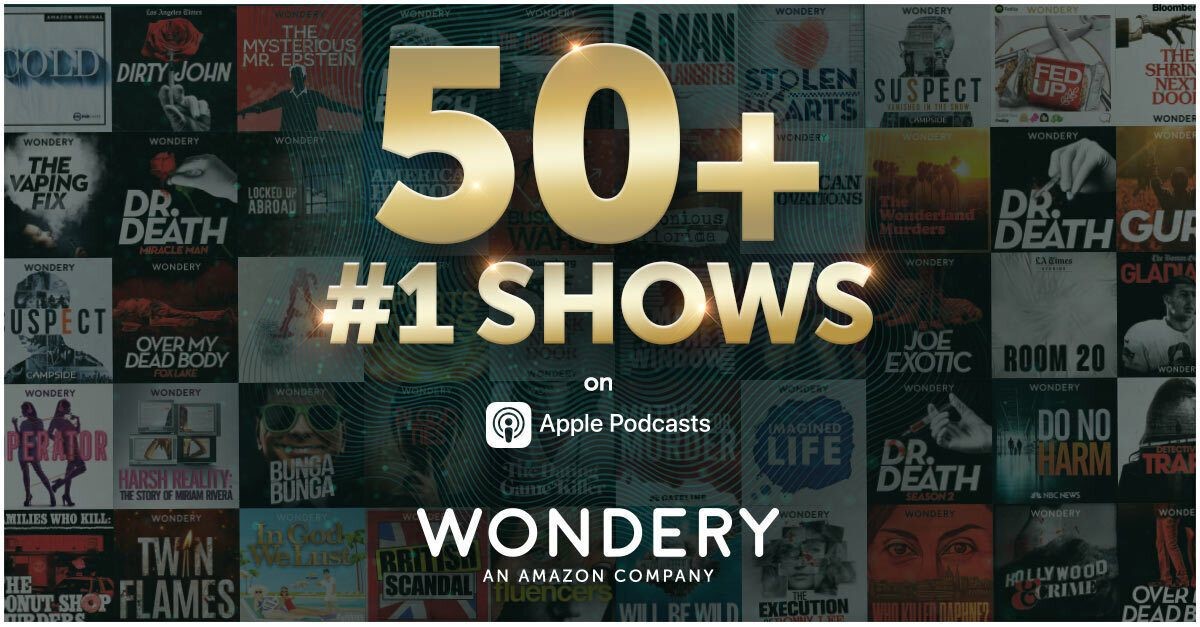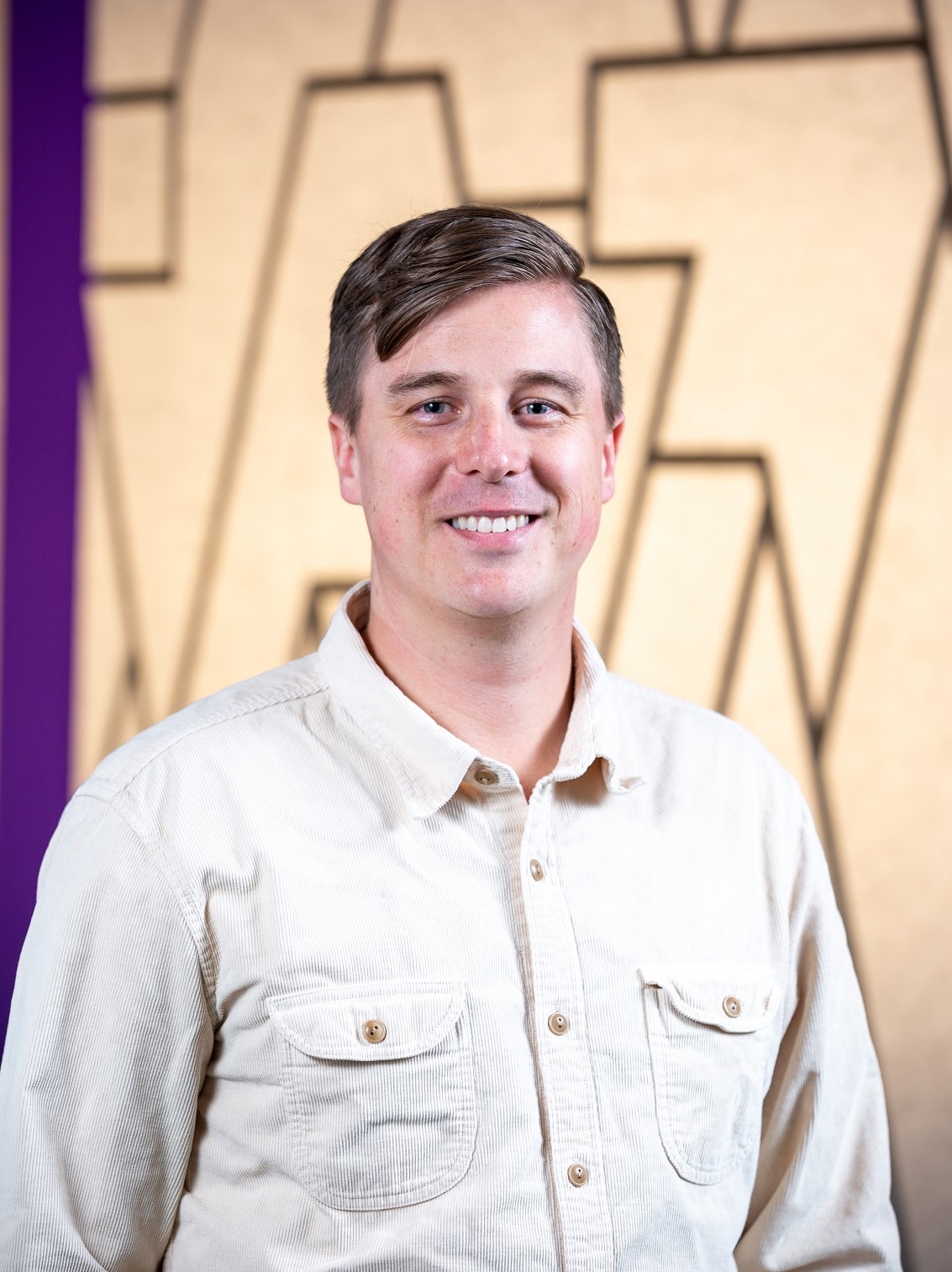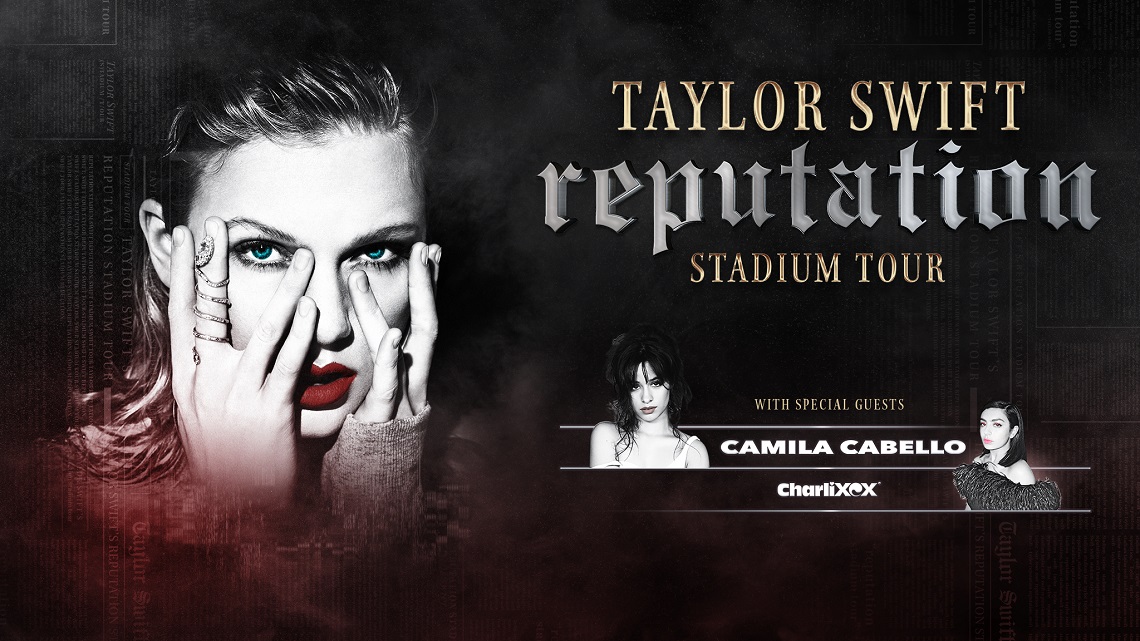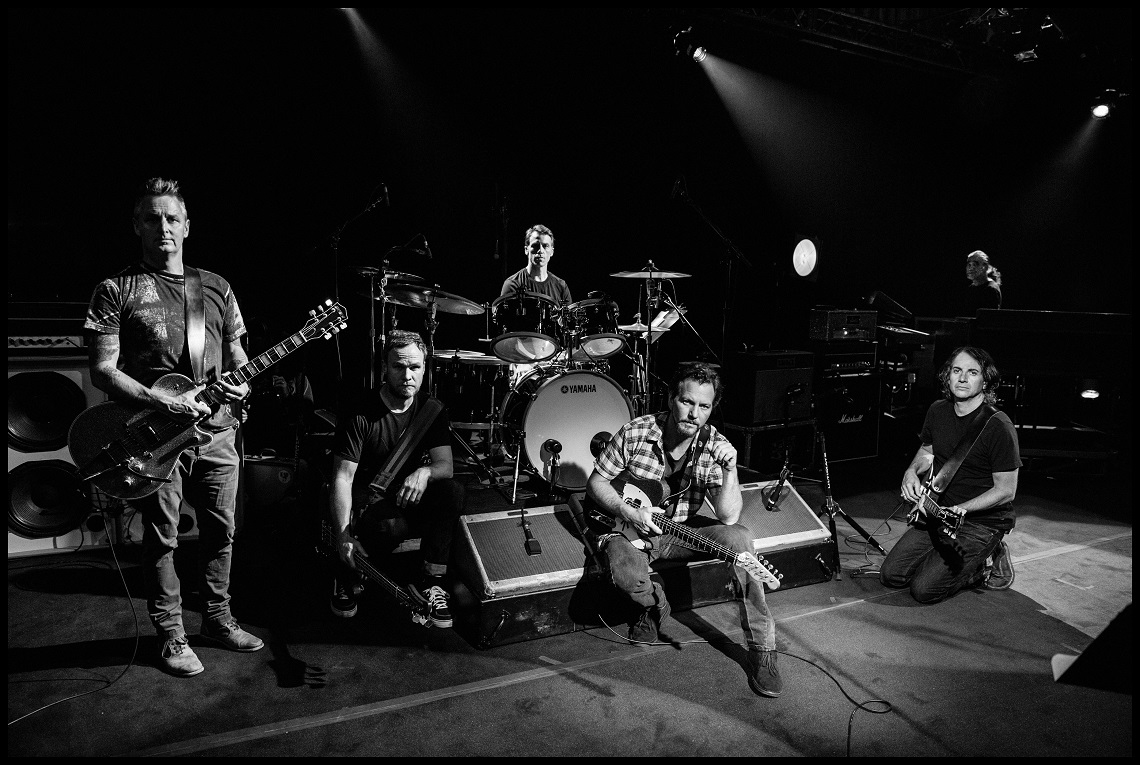Powering Performance
Ty Jacobson has built a unique career supporting A-list artists and entertainers of the soaring podcast and music industries
Want to hear a great story?
For millions of listeners every day, the answer is a resounding yes. That’s what has made podcasts the first major successful new entertainment medium in decades. And at the forefront of bringing new podcasts to listeners—and to Hollywood—is Wondery, a podcast studio that creates and produces myriad popular podcasts, including “Dirty John,” “Suspect,” “Business Wars” and “Dr. Death.”
“Podcasting is here to stay,” says Ty Jacobson (BA 2013), a senior content acquisition manager at Wondery. “That’s evident by the growth over the last couple of years. But as an industry, it’s still nascent compared to other entertainment mediums like TV, film and music.”
Wondery distributes shows from such bold-face names as Jason Bateman, Will Arnett, Sean Hayes (“SmartLess”) and Keke Palmer (“Baby, this is Keke Palmer”). And while those and other celebrities have very successful podcasts, many of the medium’s biggest hits have come from previous unknowns.
What makes a hit podcast?
“There was this idea that if you are a star, you’ll automatically be successful in podcasting,” Jacobson says.
While celebrity is an effective way of attracting attention in a crowded marketplace, he says it is the quality of the material that ultimately dictates whether a show will retain an audience: “It comes down to having something compelling and exciting to say. Do people want to listen to it? There isn’t one formula.”

As podcasting evolves, certain genres have proven to be particularly successful, most notably true crime. Unlike film and television, scripted dramas make up a relatively small percentage of podcasting programming. In Jacobson’s view, that’s an opportunity.
“There are audio features that can make scripted content much more compelling,” he says. “Things like spatial audio and Atmos-enabled content that really feel immersive, where you’re at the center and there’s a whole storyline going around you. It’s the same idea as sitting in a movie theater and feeling the experience versus watching the same content on your phone with cheap headphones.”
Facilitating an IP factory
The explosive growth of the podcasting industry has led to some major acquisitions. Spotify reportedly has spent over $1 billion on podcast content, including purchasing Gimlet and The Ringer. Wondery joined Amazon in 2020, and is now a part of Amazon Music.

Part of what is driving the industry is that Wondery, and similar other podcast studios, are serving as intellectual property (IP) factories at a time when Hollywood and streaming services have perhaps never been more reliant of existing content. Previous Wondery titles that have been adapted to television include the Apple TV+ series “The Shrink Next Door,” starring Will Ferrell and Paul Rudd, and “WeCrashed,” starring Jared Leto and Anne Hathaway, plus Peacock’s “Dr. Death.”
Jacobson’s role at Wondery is on the business side, negotiating contracts and building successful partnerships between the podcast studio and talent.
“I’m a business guy,” he says. “At Amazon, we are very data-driven. I’m often scouring the podcast charts to try and discover things that may be complementary to our existing slate or help us grow in a content vertical where we do not have much of a presence.”
The tricky business of ticket sales
Prior to Amazon, Jacobson had a key role at Ticketmaster, included developing the pricing strategy for Taylor Swift’s 2018 Reputation Stadium Tour, the highest-grossing U.S. tour in history. This gives Jacobson a unique understanding of the recent headline-making ticketing debacle that engulfed Swift’s current Eras Tour.
“For the Reputation Tour, our team helped the promoter price to market demand,” he says. “I wasn’t there for the Eras tour, but what I believe was different was we were much more conservative with the on-sale experience. We were mindful about the number of fans that were given codes to purchase. These codes were then sent to fans on a time-based system, so it gave them a more seamless purchasing experience that avoided flooding the gates with too many buyers at one time.

“But this time around, demand was absolutely massive. It gets tough with an artist of Taylor’s stature. You’re either going to make people upset on pricing because you’re trying to manage supply and demand, or she has to play so many shows in a market that it’s just not realistic.”
His time in the belly of the ticketing beast enables Jacobson to see all perspectives, from the fans to the promoters to the artists themselves. Ticketing is a unique industry, where until recently select artists were leaving millions of dollars on the table by underpricing tickets to avoid alienating fans. But this enabled third parties to exploit market demand.
“The customer feels a deep emotional attachment to the creator,” Jacobson says. “You’re mixing commerce and art. And, if you aren’t careful, it can feel like it is exploiting the trust in that relationship. You have to find that balance between maximizing revenue and making sure that real fans that want to be in the room get access to the tickets.”
Jacobson cites Ticketmaster’s Verified Fan program as a means of identify those true fans. An artist can offer those fans a lower price ticket, while more premium seats are reserved for those willing to pay at market-clearing prices.
First job, dream job
Jacobson got his foot in the door of the music industry while at Foster. As an undergrad he secured an internship at Career Artist Management, promoting the tours of artists including Maroon 5 and Sara Bareilles. That, in turn, led to one of the coolest still-in-school jobs ever: managing the online presence of local heroes Pearl Jam.
“It was a great experience,” enthuses Jacobson, whose office is decorated with Pearl Jam posters. “My day-to-day was focused on marketing the band. It opened my eyes to how you should think about the relationship between the artist and the fan community. Everything that they do, they do with the fan at the forefront.”

Music has always been a passion for Jacobson. While at the University of Washington, he was part of the Husky Band drumline, traveling to games at Notre Dame and Oregon State.
He credits his Foster School education with helping him turn that enthusiasm into a career.
“For me, it was about learning to marry the left and right side of my brain. How do I take music, this area that I love, and apply a business-oriented mindset? There were a lot of classes, skill sets and mentors that I met at Foster that helped me to tie those two things together.”
Jacobson looks back fondly at his days at Foster and has encouraging words for current students. “It’s not a typical Foster school career path, going into the music industry and now podcasting,” he admits. “But the foundation at Foster really helped me. Whether it is finance, accounting or other more traditional careers, you can follow your passions and use Foster to learn and grow.”
